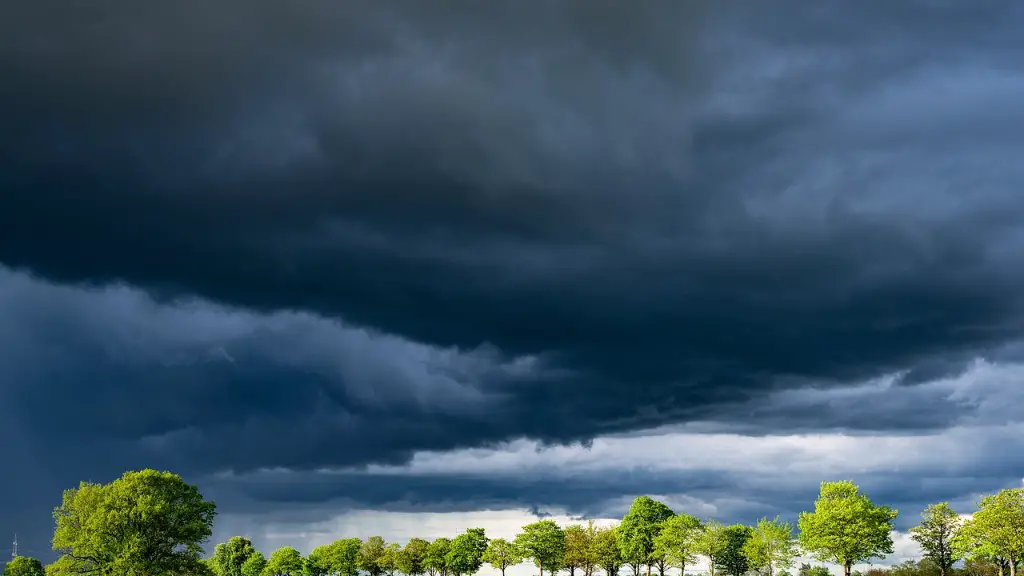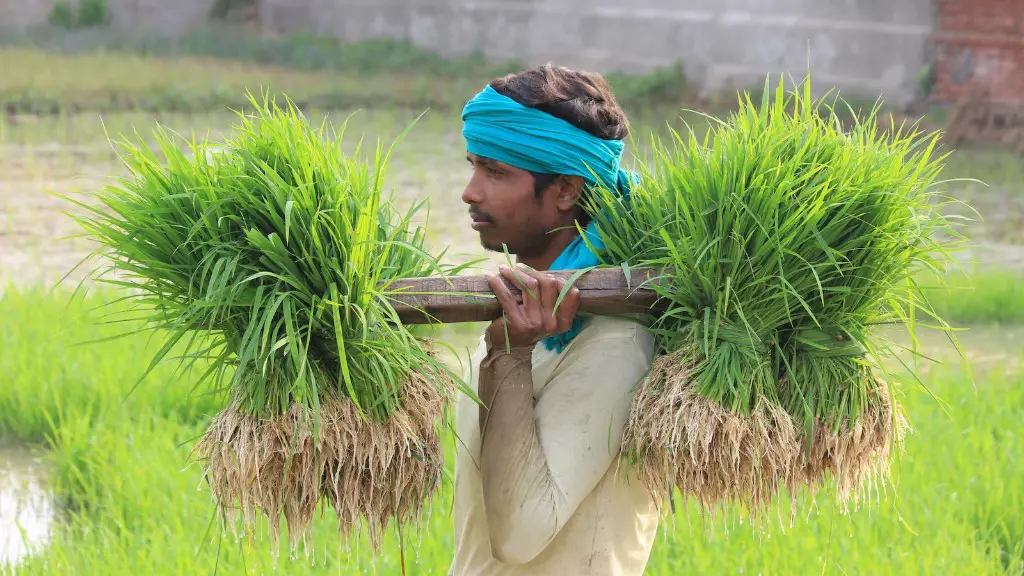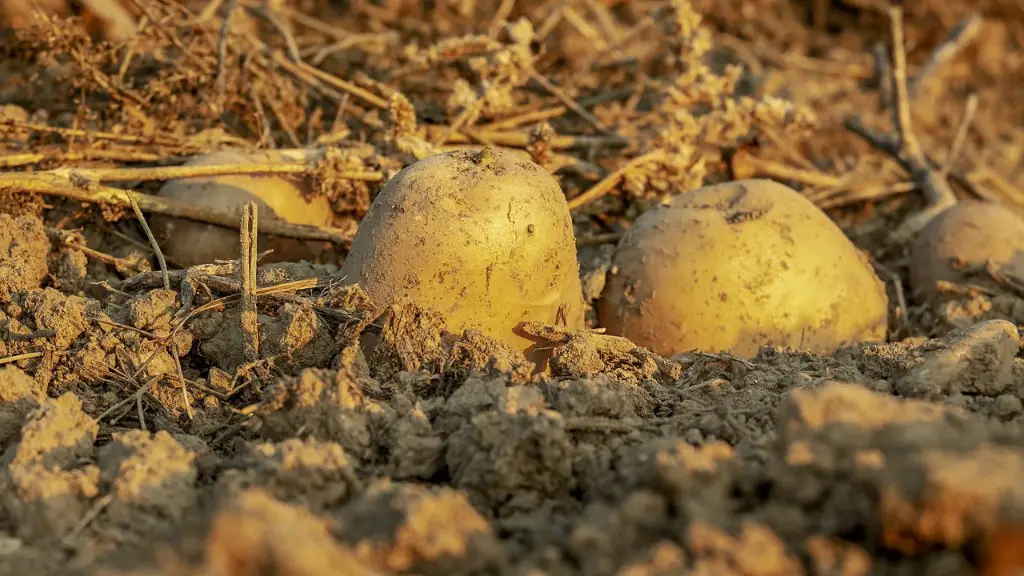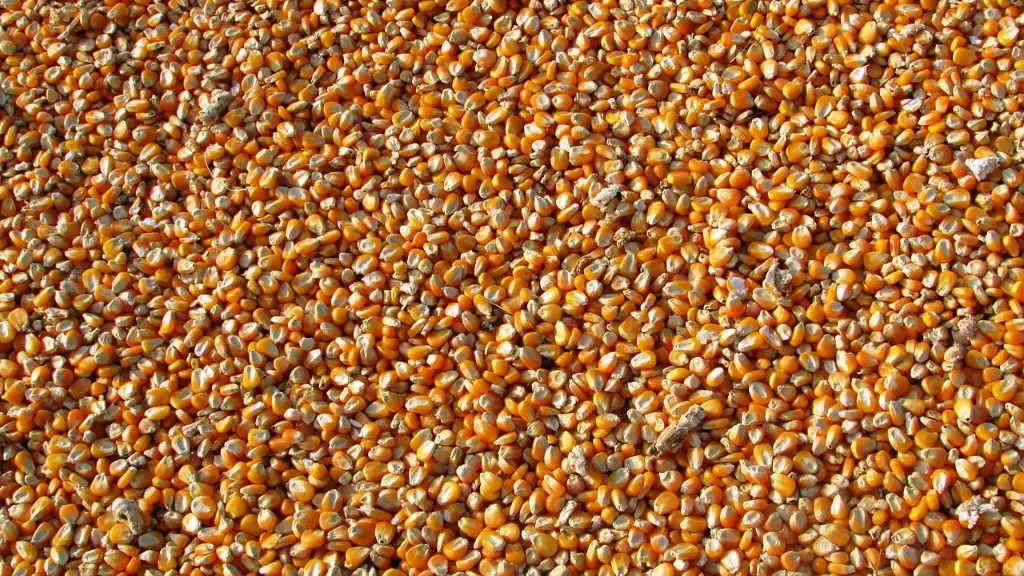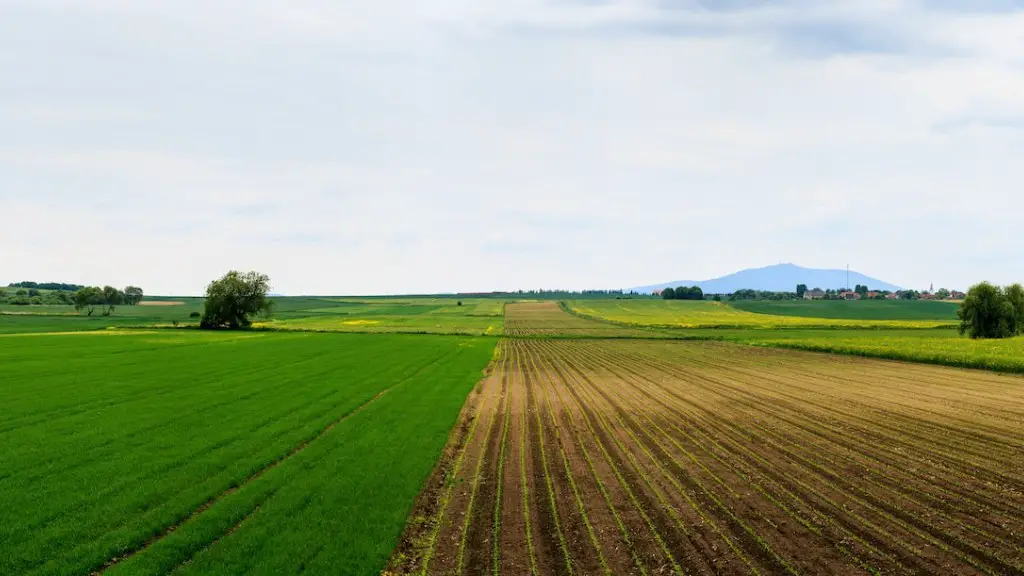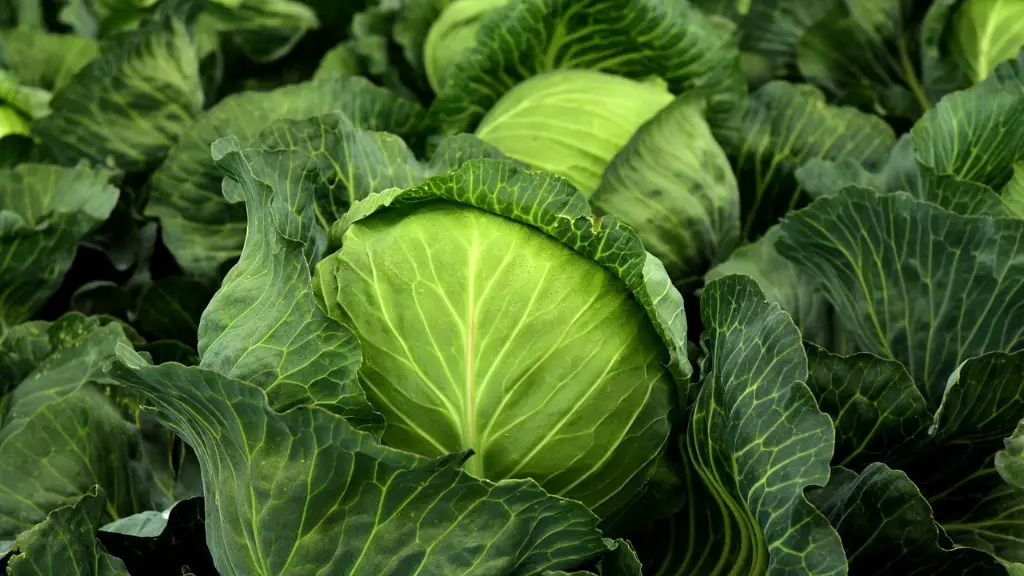Water is an essential part of agriculture. It is used to irrigate crops, provide drinking water for livestock, and control dust. In addition, water is used in many farm processes, such as washing fruits and vegetables, making milk, andprocessing meat.
-Water is used to irrigate crops
-It is used in livestock production
-Water is used to dissolve fertilizers and pesticides
-It is used to control dust
-Water is used in the production of livestock feed
What of water is used for agriculture?
Agriculture is a major water user in California, accounting for approximately 80 percent of all water used. Even small improvements in agricultural water use efficiency can be significant. There are many ways to improve water use efficiency on farms, including using more efficient irrigation systems, planting drought-tolerant crops, and using cover crops and other practices to reduce evaporation.
Water-intensive crops are those that require large amounts of water to grow. This includes crops like rice, soybeans, wheat, sugarcane, cotton, alfalfa, and pasture. These crops are typically grown in areas with high rainfall or irrigation, and they often require more water than other crops.
What are the 5 uses of water
Water is one of the most important natural resources. It is essential for human health and well-being, as well as for the functioning of ecosystems.
The most common water uses include:
Drinking and Household Needs: Water is essential for human health and wellbeing. It is used for drinking, cooking, cleaning and other domestic purposes.
Recreation: Water is used for recreational activities such as swimming, boating and fishing.
Industry and Commerce: Water is used in industry and commerce for a variety of purposes, including cooling, cleaning, transportation and power generation.
Agriculture: Water is used for irrigation, livestock watering and other agricultural purposes.
Thermoelectricity/Energy: Water is used to generate electricity at thermoelectric power plants.
Farming fruits and vegetables requires a lot of water to keep the plants hydrated and produce enough food to feed the country. For example, it takes 2,500 gallons of water to grow one pound of coffee. Plants need a consistent supply of water every day to take them from seed to harvest.
What are 4 sources of agricultural water?
The main sources for irrigation water are groundwater from wells, surface water, drainage ponds, rain and municipal water. Groundwater is the preferred source of irrigation water in many areas due to its reliability and relatively low cost. Surface water, such as from lakes, rivers and streams, is also used for irrigation, but is often of poorer quality and requires more treatment than groundwater. Drainage ponds, rainwater and municipal water are also used for irrigation, but typically have higher costs associated with them.
Water is one of the most important natural resources. It has many uses, including agriculture, industry, and consumption. Some water is also used for fun and for the environment.
What are the 7 uses of water?
Water is used for many different purposes and is an essential part of our daily lives. We use water for drinking, bathing, cooking food, washing dishes, clothes, fruits, and vegetables, and brushing teeth. Without water, we would not be able to function properly.
Water is the most essential resource for sustaining life. Every day, we use water for many purposes such as drinking, cooking, bathing, washing clothes, and more.
Water is also used to generate hydro-electricity, which is a clean and renewable source of energy. Moreover, water is essential for car washing and other cleaning purposes.
Thus, we can see that water plays a vital role in our everyday life and we should use it wisely.
What are 10 uses of water
Water is one of the most important things for our survival. We need water for drinking, bathing, cooking, cleaning dishes, washing, and clothes. Not only humans but also animals and plants need water to survive.
Water is a very versatile and indispensable resource. It is one of the most important things for our survival. We need water for drinking, bathing, cooking, cleaning dishes, washing, and clothes. Not only humans but also animals and plants need water to survive.
Water is a very precious resource and we should use it wisely. We should not waste water and should do our best to conserve it.
In most regions of the world, over 70 percent of freshwater is used for agriculture. This is because agriculture is a very water-intensive process, and it is necessary to use large amounts of water to grow crops and irrigate fields. This can put a strain on water resources in some areas, and it is important to be conscious of how much water is being used for agriculture.
What is the importance of water in agriculture Wikipedia?
Irrigation is a process of providing water to plants or crops for their growth. It is a key aspect of agriculture and has been developed by many cultures around the world. Irrigation helps to grow crops, maintain landscapes, and revegetate disturbed soils in dry areas and during times of below-average rainfall.
Water is essential for our bodies to function properly. It helps to regulate our body temperature, lubricate our joints, protect our spinal cord and other sensitive tissues, and get rid of wastes through urination, perspiration, and bowel movements.
How is water important for animals and plants
Water is a vital component for all life on Earth. Not only do animals and plants need water to survive, but the human body is more than three-fourths water. Water plays many important roles in the body, such as carrying nutrients around and removing waste. It also helps break down food and keep organisms cool. With such a vital role, it’s no wonder that water is one of the most important things for us to maintain.
Water is necessary for photosynthesis, the process by which plants use energy from the sun to create their own food. During photosynthesis, plants take in carbon dioxide from the air and hydrogen from the water absorbed through their roots and release oxygen as a byproduct. This exchange occurs through stoma, small pore-like openings on the leaves.
What are 100 uses of water?
We use water for many activities in our daily lives, including drinking, brushing our teeth, bathing, washing our clothes, cleaning the floor, flushing toilets, and cleaning fruits and vegetables.Water is essential for our survival and is vital for maintaining good health. It is important to drink plenty of water each day to stay hydrated. The amount of water we need to drink depends on many factors, such as our age, activity level, and climate.We also use water for cleaning purposes. When we wash our clothes, dishes, and floors, we are using water to remove dirt and debris. Water is also used to clean fruits and vegetables. It is important to wash produce before eating it to remove any harmful bacteria or toxins.
Water is essential for our bodies to function properly. Every system in our body depends on water. For example, water:
– Helps transport oxygen and nutrients to our cells
– Removes waste products from our cells
– Regulates our body temperature
– Lubricates and cushions our joints
– Protects our organs and tissues
Therefore, it is important to stay hydrated by drinking plenty of fluids, especially water, every day.
Conclusion
Water is essential for plant growth, as water is a key component of photosynthesis. Plants absorb water through their roots, and transport water up to their leaves through their stems. Water is used by plants to create glucose from carbon dioxide and water in the process of photosynthesis. Water is also used by plants to cool themselves through transpiration. Transpiration is the process where water is evaporated from the leaves of plants, which cools the plant and also provides water for the plant to transport nutrients up the plant.
Water is one of the most important natural resources for agriculture. It is essential for plant growth and plays a critical role in most farm production systems. Although most farms have access to water from natural sources, such as rivers, lakes, and groundwater, some farms rely on irrigation to supplement or replace these sources. Irrigation can help farmers to grow crops in dry areas, to control the amount of water available to plants, and to apply water more efficiently.
